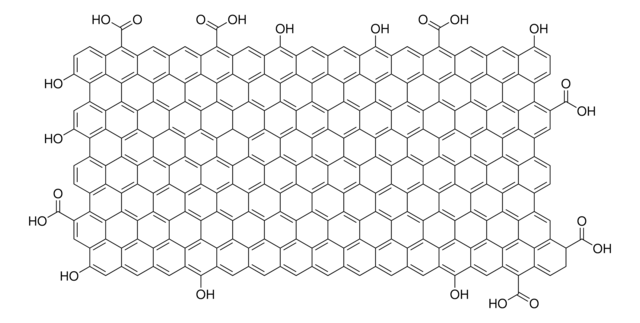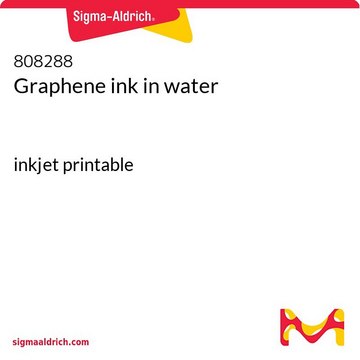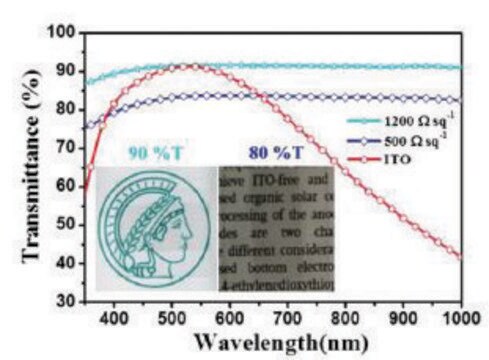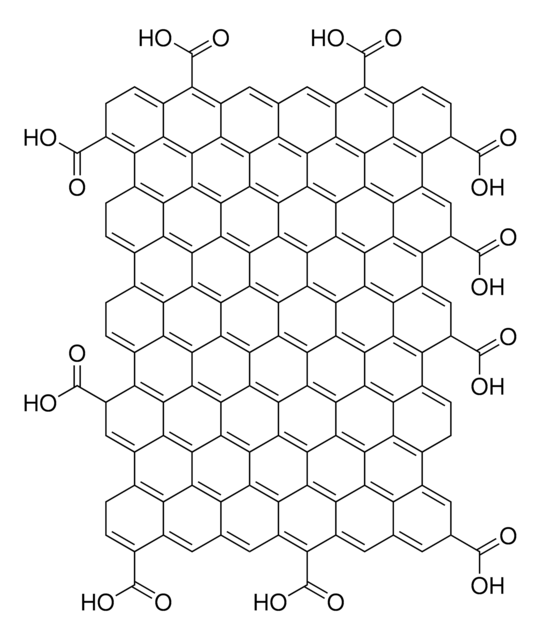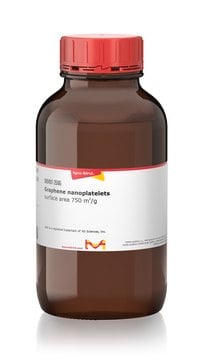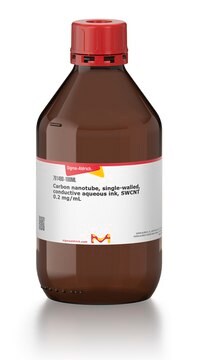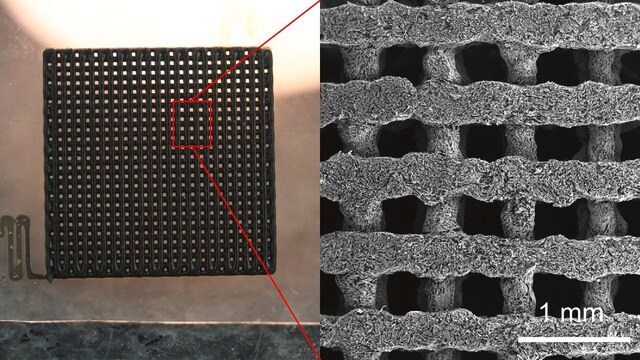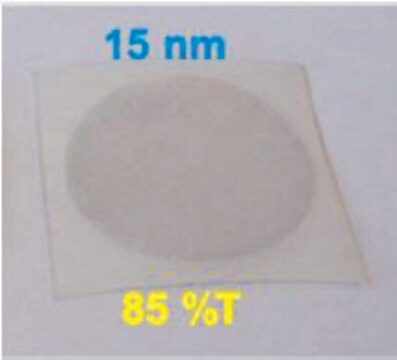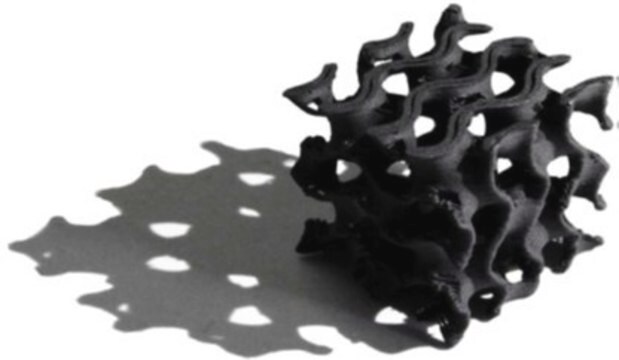805556
Graphene dispersion
In water, flexo/gravure/screen printable
Synonym(s):
conductive ink, graphene ink
About This Item
Recommended Products
product name
Graphene ink in water, flexo/gravure/screen printable
Quality Level
form
liquid
concentration
7 wt. % solids in water
sheet resistance
10 Ω/sq, 25μm thickness
particle size
500-1500 nm (exfoliated graphene flakes)
viscosity
140 cP (1000s-1)
570 cP (100s-1)
Looking for similar products? Visit Product Comparison Guide
Related Categories
Application
- Typical substates: glass, paper.
- Drying Condition: 100°C for 10min.
Storage Class Code
12 - Non Combustible Liquids
WGK
WGK 1
Flash Point(F)
Not applicable
Flash Point(C)
Not applicable
Choose from one of the most recent versions:
Certificates of Analysis (COA)
Don't see the Right Version?
If you require a particular version, you can look up a specific certificate by the Lot or Batch number.
Already Own This Product?
Find documentation for the products that you have recently purchased in the Document Library.
Customers Also Viewed
Articles
Professor Gogotsi and Dr. Shuck introduce MXenes: a promising family of two-dimensional materials with a unique combination of high conductivity, hydrophilicity, and extensive tunability.
Since its discovery little more than a decade ago,1 the two-dimensional (2D) allotrope of carbon—graphene—has been the subject of intense multidisciplinary research efforts.
Advanced technologies for energy conversion and storage are widely sought after for their potential to improve consumer and electronic device performance as well as for the prospect of reducing the societal and environmental impact of energy generation.
Professor Tokito and Professor Takeda share their new materials, device architecture design principles, and performance optimization protocols for printed and solution-processed, low-cost, highly flexible, organic electronic devices.
Our team of scientists has experience in all areas of research including Life Science, Material Science, Chemical Synthesis, Chromatography, Analytical and many others.
Contact Technical Service